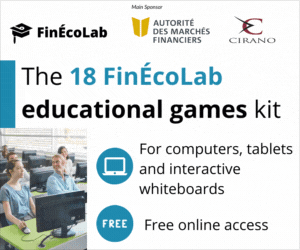On March 13, the federal government announced more than $7 million for research projects at the University of Regina. The researchers include senior faculty members and graduate students who are working on projects that range from improving children's eyewitness testimony to advancing nuclear power.
Graduate psychology student Shaelyn Carr knows that picking a perpetrator out of a lineup is one of the most compelling forms of evidence, whether on TV or in a real investigation. Unfortunately, it's also one of the most problematic. Often fraught with error, it's a leading cause of wrongful convictions. The issues are compounded when the eyewitness is a child.
"Children want to please the police by picking someone - even if they know it's not the person they saw, and even when they've been told it's okay to not make a choice - so they are more likely to identify an innocent person from a police lineup than an adult," says Carr. "Making correct identifications gets even more unreliable when there's a delay between the time of witnessing a crime and identifying someone in a police lineup."
Her master's project tested out a multiple independent lineup (MIL) technique traditionally tested on adults. "This requires a witness to make several different identification decisions from a series of lineups. One set of lineups, for example, would feature different faces, another would show different body shapes, one would show clothing, and one plays different voices," says Carr.
The premise is that the more lineups the eyewitness selects the suspect in, the more likely the witness has made an accurate facial identification. She found that this proved true in ideal circumstances, where the child had a strong memory of the culprit, where there was a short time between seeing the perpetrator and seeing the lineup, and where they had a long exposure to them.
"My PhD project will now test if the same is true for children where there are poor circumstances, like a child not having a strong memory of the culprit, or there being a long delay between seeing the culprit and the seeing the lineup, and having short exposure to the perpetrator," says Carr. To support this research, she received $80,000 in federal funding through the Social Sciences and Humanities Research Council (SSHRC) Doctoral Fellowship, and $28,000 from the U of R's Faculty of Graduate Studies and Research.
Also announced were two new tier-two Canada Research Chairs.
"Nuclear power is an important tool in the fight against climate change due to its ability to generate power without greenhouse gas emissions," says Dr. Arthur Situm, a Canada Research Chair in Small Modular Reactor Safety and Licencing.
Situm, who received $600,000 from the Canada Research Chairs program, and $200,000 from the Canada Foundation for Innovation to help support his lab's infrastructure, says that there are plans to deploy several new small modular reactors (SMR) in Canada.
"They have lower upfront capital costs than traditional nuclear power plants and can be deployed to smaller grids, such as Saskatchewan's," says Situm. "Many of these advanced designs propose to use novel fuels, but these fuels introduce new corrosion problems that must be resolved before the reactor designs can be licensed."
Situm's lab is developing strategies to mitigate the corrosion of metals when using novel molten salt fuels to enhance the safety of standard nuclear fuel, and working on how to best dispose of these fuels.
"Overall, my research program will provide valuable insight to both government and private industry as they build and deploy SMRs, while also helping students develop the skills and knowledge necessary to work in this emerging industry," says Situm.
Dr. Gojko Vujanovic studies the fundamental building block of matter that surround us by exposing new states of matter that are present beyond solids, liquids, and gases.
"These new states of matter exist at extremely high temperatures - trillions of degrees - and are recreated in the laboratory using high-energy nuclear collisions. Such temperatures were produced by the Big Bang when the universe was a millionth of a second old," says Vujanovic, a Canada Research Chair in Subatomic Physics Phenomenology.
The U of R physicist says that in high-energy nuclear collisions, these states are extremely short-lived and require extensive physics-based numerical simulations to be understood.
"My research pushes the boundary of what our computational algorithms and technology can achieve, using a combination of high-performance computing, big data analysis, and artificial intelligence. My Canada Research Chair program aims to accelerate Canadian nuclear science leadership, while also helping develop technologies to benefit all Canadians," says Vujanovic, who received $600,000 from the Canada Research Chairs program, and $83,109 from the Canada Foundation for Innovation to help support his lab's infrastructure.
Please see the attached backgrounder for a full list of U of R research projects that received funding in today's federal bundled announcement.











